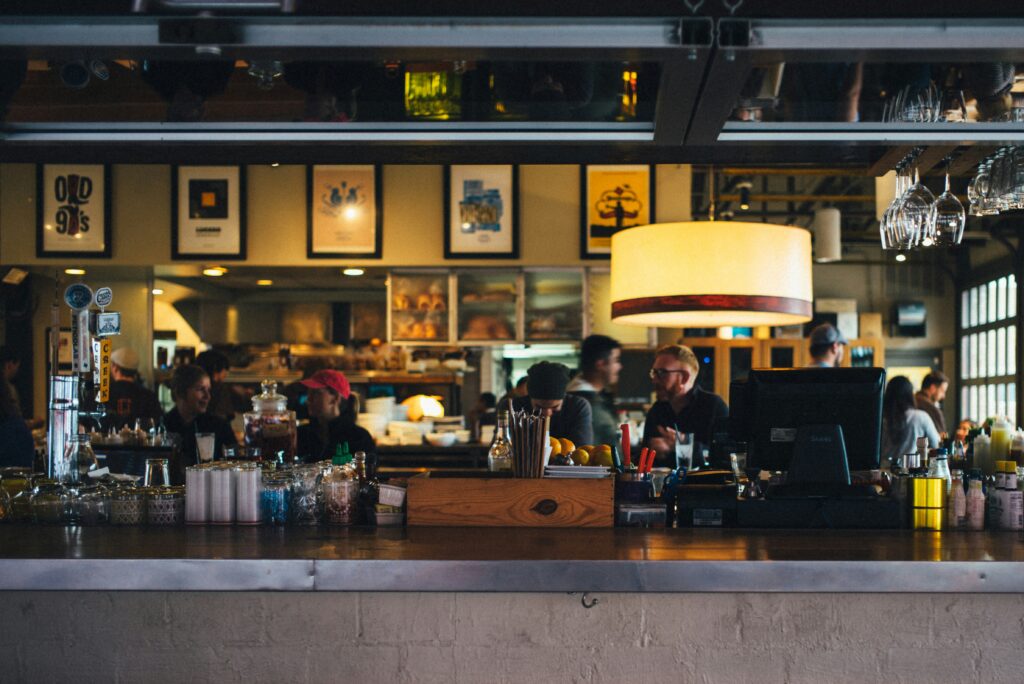Stay in the loop
Table of Contents
The restaurant, bar and hospitality industries are more competitive than ever, meaning that as a business owner, you need to do everything you can to optimize the success of your bar.
Since the restrictions from the pandemic have been lifted, consumers are more eager than ever to get out there and spend their money in enjoyable settings with friends. Your business can provide the perfect place for that but in order to have the opportunity to be a thriving bar that people flock to, you need to be smart about your management.
The behind the scenes of bar management is just as important as the face of the business. A successful bar manager needs to not only think about the experience of regular customers, but also about how to sustain high profit margins which will allow current and potential customers to continue enjoying the bar for a long time to come. To help you understand how you optimize your bar operations, we have created this guide with bar management tips to ensure you run a profitable business with guaranteed long-term success.
7 steps to running a successful bar
Running a successful bar is no easy feat. Even business owners with extensive experience can struggle to keep a bar open and thriving for a prolonged period of time. From an efficient kitchen, to top-notch service, everything relies on smart management.
Get personalized recommendations on bar and restaurant inventory management.
1. Identify your target audience
The first thing that you must do in order to run a successful bar is to decide who your target audience is. Identifying the specific group that you are catering for will allow you to create a personalized experience for customers who will appreciate your bar for what it is.
For example, the type of bar that is directed towards 20-30 years old working professionals who are looking to have a few drinks after work is going to look a lot different than a bar catered towards 50 years old and upwards rich retirees who are looking for a more sophisticated setting for an evening drink.
Before you start your bar journey, you need to be able to identify the customer experience that you are looking to create at your venue as it will inform all the decisions within your bar, from the aesthetic to the bar menu, to the price point that you are going to set everything at.
10 ways to increase your restaurant profits
2. Optimize your cocktail list
Once you’ve identified your target audience, you can start crafting the cocktails you are going to offer. Whilst most places offer the classics, such as pornstar martinis, mojitos and cosmopolitans, to really stand out, you need to think outside of the box.
Your cocktail menu should include some signature cocktails which are specific to your venue. These signature drinks should reflect your establishment, meaning if your bar is themed your cocktails should revolve around that theme. If you are more of an upmarket bar, your cocktails should be classier, whereas if you market yourself as a budget bar, they can simply be variations on popular drinks.
Having a unique and varied drinks menu will allow you to appeal to your specific target market whilst also standing out from the crowd. It will give you some additional personality which will draw in a wider audience.
Cocktail and bar industry trends
3. Hire good bar staff
At any bar or restaurant, the face of the business is the staff. It’s important to ensure that you have full faith that the people that you hire to be the face of your business accurately portray the values and ethos of your bar. Whilst hiring people who you think match the vibe of your business is important, it is only half of the equation.
You need time and resources to train your employees effectively in order to ensure they know what is expected of them and they work to the highest standards. At the end of the day, it is the staff on the floor who interact with customers and make or break the experience at your bar. Hiring talented bar staff with customer service experience is integral if you want return customers.
4. Invest in a bar inventory app
When it comes to minimizing operating costs, inventory management is key. How substantial your profit margin is will depend on how efficiently your inventory is being managed, because, naturally, if you are consistently buying too many supplies and not as much is being used, you are wasting money. You need to ensure that your ratio of incoming and outgoing inventory is proportionate.
A bar inventory app is the ultimate solution. At RapidStock, we have created the ultimate solution that integrates into your POS system and makes the entire inventory process 100x easier. With our app, you do not need to have a dedicated inventory staff member who guesses how much has been used and how much is needed, as our software automatically calculates all of that based on what you sell every week.
You can input your recipes and products into the app and when things are ordered, the app will calculate the inventory you have left. This smart system allows you to control your inventory in real-time, hence making the entire process more efficient. Our solution allows bar owners and managers to avoid stock issues and save money on labor costs, food costs and beverage costs.
Tracking your liquor inventory and daily usage has never been simpler:
- Manage your liquor orders and your liquor usage
- Track your stock directly in the app
- Avoid liquor discrepancies and bar count variances
- Save on labor cost
- Stock data and avoid paperwork
- Identify bar and restaurant liquor errors
- Extend your POS bar inventory features
- Automate suppliers order calculations and receiving
5. Be smart about suppliers
Suppliers are one of the most crucial parts to keeping your business afloat and profitable. They are the ones who provide you with all the ingredients that you need to keep stocked up in your bar or restaurant, and they are the ones who set the prices. Whilst it is important to maintain strong relationships with your suppliers, you also should not be afraid to shop around if necessary.
Staying loyal to your supplier might afford you lower rates but their discounted prices might still be more expensive than other suppliers whom you have not contacted yet. You need to find a system with suppliers that works for you and keeps your outgoing costs as low as possible.
6. Make sure your bar is clean at all times
Cleanliness is a must for any business in the hospitality sector. Similarly to bar staff, your actual bar has a big impact on the first impression of customers. In fact, the bar leaves a bigger impression than anything else because it is the very first thing people see, in some cases, they can even look in from outside and assess the state of the bar.
No one is interested in stepping foot into a dirty establishment as it suggests that the bar owner does not care about his business or customers. It also suggests that the quality of the food and drinks that you offer will be poor. Since the advent of covid-19, cleanliness and safety are top customer priorities.
It is actually very easy to maintain a clean bar, all you need to do is ensure that your bar staff is well trained. Give them a checklist of things that they should do on a daily basis to keep the bar clean, which can include things such as clearing away empty plates and glasses immediately, wiping down staples as soon as customers have left and consistently keeping work stations and tables organized and accessible. You can create cleaning checklists for the bathroom, kitchen and dining room.
7. Lead by example
As a manager or a business owner, you put a lot of faith in your employees. They put in the effort on the ground to ensure the success of your business, so it’s important to make sure that they are performing at the level you would expect them to perform. For you to justify these expectations, you need to lead by example.
There is no point in expecting your employees to live up to your high standards if you are not living up to them yourself. It is the responsibility of those higher up the ladder and those in charge to display the level of professionalism and work ethic that is expected of those who are busy running the place on a day-to-day basis. In addition to demonstrating a strong work ethic, a good bar manager should also possess key qualities such as empathy, kindness and understanding, as it is extremely important to treat your bar staff well.
About the author
Fabrice Tremblay
Fabrice founded RapidStock in 2017 after working as a production planner for almost two decades. Briefly a bar owner and tech lover, he was inspired by the challenge of helping passionate entrepreneurs in the bars and restaurants industry.
When not working on RapidStock, Fabrice enjoys cooking and spending time outdoors with friends and family.
More tips and tricks



